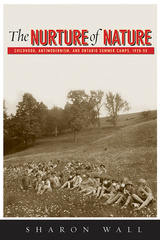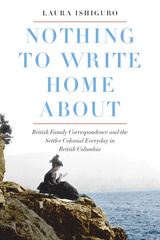
Guiding Modern Girls
Girlhood, Empire, and Internationalism in the 1920s and 1930s
Across the British Empire and the world, the 1920s and 1930s were a time of unprecedented social and cultural change. Girls and young women were at the heart of many of these shifts, which included the aftermath of the First World War, the enfranchisement of women, and the rise of the flapper or “Modern Girl.” Out of this milieu, the Girl Guide movement emerged as a response to popular concerns about age, gender, race, class, and social instability.
The British-based Guide movement attracted more than a million members in over forty countries during the interwar years. Its success, however, was neither simple nor straightforward. Using an innovative multi-sited approach, Kristine Alexander digs deeper to analyze the ways in which Guiding sought to mould young people in England, Canada, and India. She weaves together a fascinating account that connects the histories of girlhood, internationalism, and empire, while asking how girls and young women understood and responded to Guiding’s attempts to lead them toward a service-oriented, “useful” feminine future.
Guiding Modern Girls adds new depth to what are largely separate understandings of interwar girlhood, British imperialism, and internationalism. By analyzing the Guides as a worldwide organization whose early twentieth-century leaders sought to create a conservatively modern ideal of gender, class, age, and race relations, this book also reveals how girls and young women understood, reworked, and sometimes challenged the expectations placed on them by the world’s largest voluntary organization for girls.
This book is for scholars and students interested in the history of childhood, girlhood studies, the history of Scouting and Guiding, and internationalism in the interwar period. It will also find readers among scholars and students of British history, Canadian History, Indian history, imperial history, transnational history, women and gender studies, and cultural studies.
Awards
- 2019, Shortlisted - 2019 Ferguson Prize, Canadian Historical Association
- 2018, Winner - Founder's Prize for Best English-language Book, Canadian History of Education Association
- 2017, Winner - Wilson Book Prize, The Wilson Institute for Canadian History at McMaster University
Guiding Modern Girls unveils how the early Girl Guide movement carved out spaces of intergenerational female homosociality that were neither fully empowering nor exclusively oppressive. On a larger scale, it gestures at the untapped potential buried in the history of youth organizations for charting the stony and serpentine trails that led to the emergence of a global modernity.
Kristine Alexander makes a significant contribution to the intertwined histories of girlhood, imperialism, and the international Girl Guide movement.
Alexander paints a complex image of the organization, which was the epitome of the simultaneously dynamic and traditional nature of British society in the interwar period, and makes a significant contribution to our understanding of the Girl Guides through this thought-provoking transnational study.
Impressively researched and enlivened with the voices of local leaders and even some young guides, Guiding Modern Girls draws attention to guiding as an important childhood institution that connected Canadian children (across race and region) to a transnational network that extended throughout the British Empire.
Kristine Alexander offers up a razor-sharp analysis of Guiding in the interwar period as a force for shaping conservative modern girlhood in Canada, India, and Britain. This is a brilliant book.
Introduction
1 Guiding’s Beginnings: Victorian Antecedents and Early Twentieth-Century Growth
2 Guiding Girls toward the Private Sphere: Training for Homekeeping, Mothercraft, and Matrimony
3 “We Must Give the Modern Girl a Training in Citizenship”: Preparing Girls for Political and Social Service
4 Moulding Bodies and Identities in the Outdoors: Religion, Gender, and Racial-National Narratives at Girl Guide Camps
5 “The Mass Ornament”: Rallies, Pageantry, Exercise, and Drill
6 Imperial and International Sisterhood: Possibilities and Limits
Conclusion
Note; Bibliography; Index












